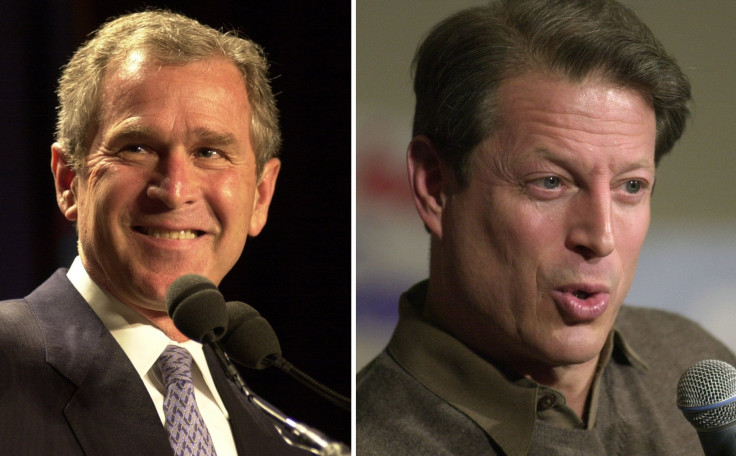What Happened In The 2000 Election? Hanging Chads, Al Gore vs. George W. Bush And What It Means For Donald Trump

In the final presidential debate Wednesday, Republican presidential nominee Donald Trump refused to commit to accepting the results if he lost come Election Day. While many considered this shunning a fundamental pillar of U.S. democracy — throwing into question the peaceful transition of power — a number of Trump defenders quickly pointed to the 2000 election as evidence there was a precedent for questioning the results of a presidential vote.
The Trump surrogates were referencing a recount that involved then-candidates Republican George W. Bush and Democrat Al Gore, who lost the election despite a long process of double-checking the votes. "Al Gore conceded that time, unconceded, and then reconceded three weeks later," said Corey Lewandowksi, former Trump campaign manager turned CNN talking head on air.
It is true there were questions over the 2000 election, but it was in many ways markedly different than the 2016 GOP nominee's claims that the pre-Election Day claims that the vote is rigged against him by the media, GOP elites, the voters themselves (through voter fraud) and government officials.
On election night in 2000, TV networks jumped the gun and called Florida for Bush. That led Gore to concede to Bush, as is the tradition, because without Florida's electoral votes it was over for the Democratic nominee despite the fact that he ended up winning the popular vote by nearly 544,000 votes. Networks later realized their mistake and announced it was actually was too close to call and Gore took back his concession. It's important to note that a concession is in no way legally binding or mandated, but rather a sign of civility in the election process and a gesture that projects confidence to the U.S. citizenry and international community.
Because Florida's vote was so incredibly close — the final margin of victory was an improbably narrow 537 votes — state law mandated a recount. After some legal wrangling, the issue eventually landed at the Supreme Court.
Veteran WH reporter @jkuhnhenn on the Al Gore analogy pic.twitter.com/8uOjl9lTBZ
— Nick Riccardi (@NickRiccardi) October 20, 2016
The issue was also not as simple as re-calculating ballots as well. There were questions of deciphering a voter's intent, which brings us to the infamous "hanging chads." This referred to physical paper ballots where a hole-punch into the card was not complete and thus, hanging. This was a problem especially among voters in Palm Beach County, Florida, a typically Democratic area, as elderly voters complained of a confusing and faulty butterfly ballot.
Some Democrats did levy a fair number of accusations that questioned the good faith of the system. New York Magazine pointed out this week, Florida Gov. Jeb Bush, brother of George, employed a method that purged many legal minority voters, and a vast number of over-votes were not allowed, which means a voter both wrote the name of their choice and selected the name on the ballot. The intent of the voter seems pretty clear in that situation, but still the votes were not counted. The St. Petersburg Times reported in 2001 that with these votes, Gore would have won.
There were a lot of moving parts to the 2000 election, but as the Washington Post pointed out, the disputes were over counting ballots and voter intent, not a rigged election. In December 2000, the Supreme Court decided, 5-4, to not allow the recount the Florida court's had ordered. Many Americans took issue with the decision, but Gore indeed re-conceded, knowing his time to fight was up.
"Other disputes have dragged on for weeks before reaching resolution," Gore said in his concession speech. "And each time, both the victor and the vanquished have accepted the result peacefully and in the spirit of reconciliation. So let it be with us."
© Copyright IBTimes 2025. All rights reserved.






















